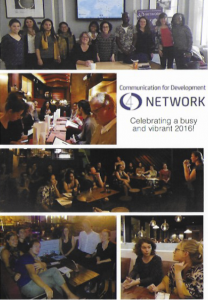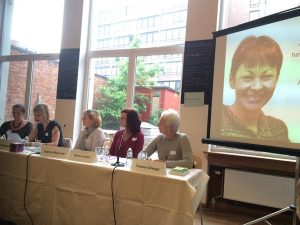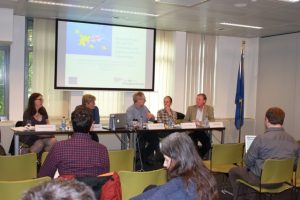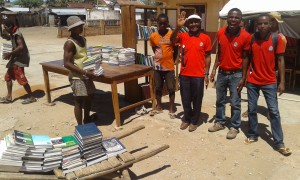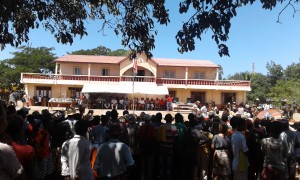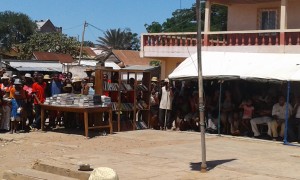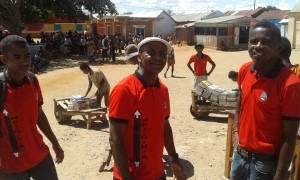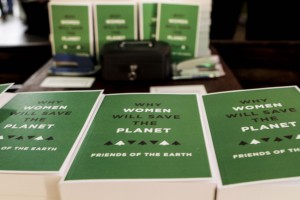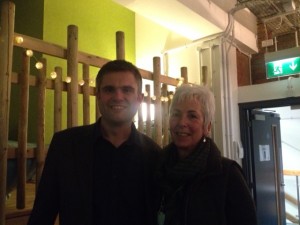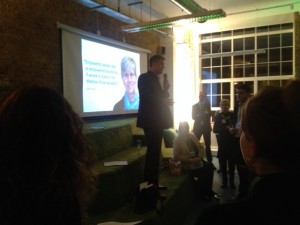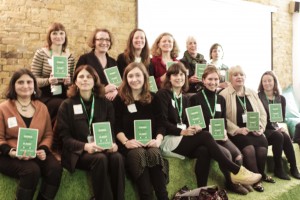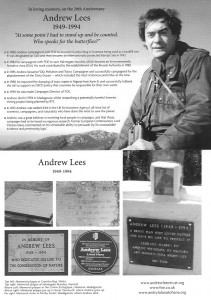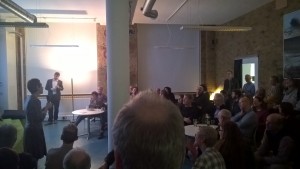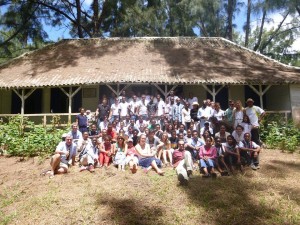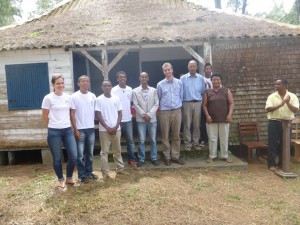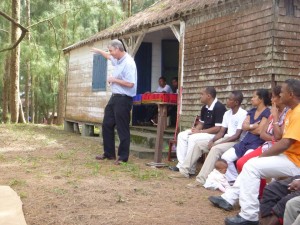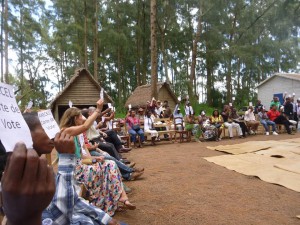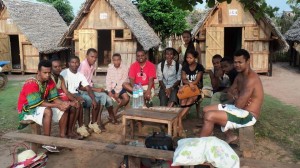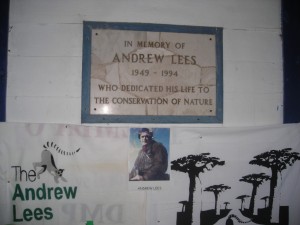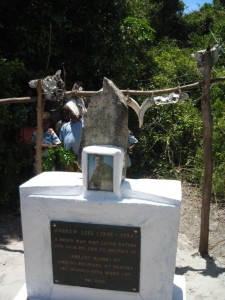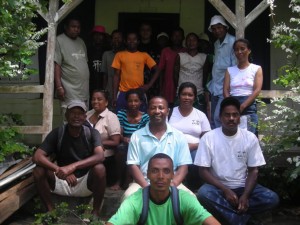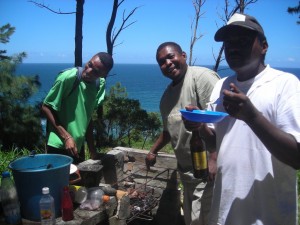ANDREW LEES TRUST – TWENTY YEARS ON
This year the Trust celebrates twenty years of charitable work and remembers Andrew Lees’s passing in Madagascar on December 31st 1994
Andrew Lees (1949-1994)
Andrew Lees Trust – The History
When news of Andrew’s disappearance in a remote forest of southern Madagascar hit the UK national press early in January 1995 the environmental movement was shocked. The community rallied and money was sent in to help the search for Andrew.
Andrew, then Head of Campaigns at Friends of the Earth UK, went to Madagascar to research a proposed mine by the multi national mining giant, Rio Tinto. He had gone to visit local communities, interview them, record their opinions and film the imperiled forests that would be decimated by the extraction of a mineral, ilmenite, from the fragile coastal landscape on the south eastern tip of the island.
After days of searching, Andrew was discovered to have died of possible heatstroke in the forest of Petriky. His family and friends were devastated. So too were the many people that Andrew had touched during his years as an environmental campaigner, working with local communities, volunteers, activists and journalists.
While Andrew was missing, many of these supporters sent in funds to assist the search. After his death it was these funds that were used to launch the Andrew Lees Memorial Fund, later renamed the Andrew Lees Trust.
For the first year, Friends of the Earth administered the Fund, but the charity was soon registered under its own sovereign identity and led by Andrew’s partner, Christine Orengo (UCL) and his close friends and colleagues, Marek Mayer (ENDS) and Mary Taylor (FOE), with family members also on the Board of Trustees.
The first action of the charity was to help launch an environmental training centre, The Centre Ecologique Libanona (CEL) in the Anosy region where Andrew had died. All agreed that this was an appropriate way to memorialise Andrew’s belief in local empowerment. In December 1995, on the first anniversary of his death, the Centre was opened on the Libanona Promontory in Ft Dauphin. The old Schoolroom was rehabilitated – originally constructed by the Lutheran missionaries who used Libanona as a retreat – and was dedicated to Andrew’s memory. Over the following four years the Trust sent funds to support student bursaries, rehabilitate more buildings for teachers and students and cover local salaries; the Trust also sent books and equipment for the CEL library.
Andrew’s partner, Christine, and her sister, Yvonne Orengo, were present for the CEL launch. Yvonne became increasingly involved with the Trust, producing an annual cultural and fundraising event , ‘Madagascar Spirits’, which brought together the Diaspora in London, environmental activists, supporters of Madagascar and many notable Malagasy musicians including Tarika, Justin Vali, D’Gary, and Njava.
Together Christine and Yvonne visited Madagascar each year to see the Centre evolve and liaise with its founders Mark Fenn (WWF) and Raoul Mulder (University of Melbourne) on the needs and development of the project.
It was during one of these visits that wider educational activities were discussed for the region and the possibility of using wind up radios to bring education to isolated villagers who had little or no access to schooling, and who were disadvantaged by low levels of literacy. The idea was welcomed and Mark Fenn brokered some initial discussions with local partners.
ALT On The Ground
With help from Sarah Pennington, a volunteer then studying at Birkbeck College, ALT’s educational radio project was piloted in 1998 in the Androy region, funded by the British Embassy. Yvonne undertook further fundraising for the project, secured a contract from the EU Food Security Division and, in 1999, arrived in Madagascar to implement and develop ALT’s ‘Project Radio’ .
Over the next six years, living in Anosy, she worked with the local team and ALT’s international staff and consultants to Direct and develop the Trust’s wider programme of social and environmental projects ranging from food security, environmental protection and natural resource management, energy efficiency, emergency relief communications for development, good governance and HIV AIDS awareness. See the ALT Review for 2010 and blog updates.
The Trust evolved from a hands off small grants provider to managing its own 4 million Euro portfolio of projects, running seven offices and managing a team of 60 + who delivered the projects in the field, developed partnerships and built relationships of trust with NGOs, service providers, media outlets, local authorities, and village communities across two ex provinces of Madagascar (Tulear and Fianaratsoa), reaching more than 800,000 beneficiaries across all of its activities.
Vision of Empowerment – Handing Over
In 2009 the Trust realised its long-term sustainability strategy to hand over the work to its local team. The Trust assisted its Malagasy team to set up a Malagasy NGO called Andry Lalana Tohana (ALT Mg). It then transferred all its assets and know-how to the newly formed ALT Mg and accompanied the Malagasy team over their first year of independence in order to provide continuity, technical support and financial security.
By 2010 ALT MG was established in its own right with its own funded programme, based on the skills and experience gained with ALT UK. See www.andrylalanatohana.org
ALT MG has continued to deliver frontline food security, development communications, emergency relief, energy efficiency and environmental projects and is successfully led by its Director in Ft Dauphin Hanitra Raharimanana.
ALT UK‘s strategy has been focused on supporting and mentoring ALT Mg – in particular throughout the delivery of a joint emergency relief programme and for the launch and the development of a new and innovative radio project – Village Voices for Development.
ALT Mg has secured new contracts for 2015 and it is the hope of ALT UK that they will continue to lead and deliver innovative and vital projects in southern Madagascar and act as a model for sustainable local development and leadership
THANK YOU !
Reflecting over the years, the Trust gives thanks for the extraordinarily dedicated and passionate team of skilled workers – both Malagasy and international – who worked for the Trust, many for ten years or more. Also the wonderfully generous volunteers who either assisted the projects on the ground or helped the administration and communications of the Trust from the UK – some of whom are still give their time voluntarily today.
ALT has also benefitted from the skills and expertise of a wide range of professional consultants, trainers and advisers all of whom who have contributed to the growth and success of the work and the skills of the team.
The Trust is grateful too for all the Trustees who have served on the Board and especially for those who have ensured continuity: two founding members who have served for twenty years: Christine Orengo and Mary Taylor; and two others for over ten years :Tony Long and Vola Parker, with the recent addition of ALT’s ex Head of Finance, Rosalba Leonelli, also with ALT for over ten years. The Director Yvonne Orengo has been involved with the Trust for twenty years.
The Trust recognises it could not have achieved its work without the funding of the international and national donor community, many of whom ensured repeat funding to the Trust’s programme for ten years; also to those who have given generously on a personal basis annually. Thank you so much for your belief in and support of our work.
Over the years the Trust has also experienced sadness and loss and we take a moment to remember Marek Mayer (1952-2005), Andrew’s close friend and one of ALT’s Founders, Trustees and a generous benefactor of the charity’s work. The ALT tree nursery was dedicated to Marek in 2007.
We extend our gratitude to you all for your generous support of our endeavour in Madagascar, which has helped ensure the success of the Trust and its Malagasy partner, Andry Lalana Tohana.
Please continue to support our work
Note The Trust in the UK is virtual with minimal running costs and only volunteer staff so the majority of our resource goes to Madagascar and to supporting our Malagasy partner Andry Lalalana Tohana on the ground.

